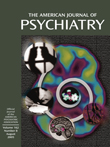Dr. Gijsman and Colleagues Reply
To the Editor: We thank our correspondents and appreciate their points of view; we will address three independent concerns in their correspondence.
Regarding meta-analysis and heterogeneity, we agree with Drs. Ghaemi and Goodwin that meta-analysis can be seen as an “observational study of studies” simply because one can only include the trials that have happened to be performed and written up. However, the benefit of random assignment certainly is not lost with meta-analysis because it preserves the unbiased estimate of treatment effect from each randomized trial and estimates a weighted mean treatment effect. Heterogeneity is the situation in which there are genuine differences underlying the results of studies (1). In our review, there was evidence of heterogeneity on the outcome of “clinical response” in the comparison of antidepressants versus placebo. However, the direction of the treatment effect is the same for all studies, limiting the clinical implications of the heterogeneity (1).
Drs. Ghaemi and Goodwin argue that the effect of antidepressants might be smaller in studies in which all patients concurrently used lithium, and they suggest that this is caused by the antidepressant effect of lithium. They also argue that in one trial, the differential use of lithium may have positively influenced the effect of antidepressants, but the particular figures they give appear to be misquoted.
We think their explanation is unlikely because the proportion of responders in the comparison group is not larger in studies with concurrent use of lithium, as would be expected under their hypothesis. Moreover, on a priori grounds, we think the concurrent use of lithium is unlikely to be a major issue between the trials. Most patients had already been taking lithium for some time at random assignment; they were not, for the most part, assigned to it as a new treatment.
As to long-term outcomes, we acknowledge, with Drs. Ghaemi and Goodwin and Drs. Fetter and Askland that our review included only short-term studies, and we did not draw any conclusions about the longer-term risk of antidepressants to induce mania or rapid cycling. Instead, we said, “Given the limited evidence, there is a compelling need for further studies with longer follow-up periods and careful definition and follow-up of emerging mania and partial remission” (p. 1537).
In the long-term treatment of patients with bipolar disorder, the combination of lithium plus a tricyclic antidepressant was associated with more manic relapses (although not statistically significant) only in the controlled study by Quitkin and Kane (1981) but actually not in the controlled study by Prien et al. (1984). The study by Altshuler et al. (2) was a naturalistic study, indicating that stopping antidepressants in patients who were also using mood stabilizers was associated with more depressive relapses; this finding is often interpreted as favoring the long-term use of antidepressants in at least some patients.
We are currently piloting a trial from Oxford comparing any selective serotonin reuptake inhibitor with lamotrigine in bipolar depression. We aim to randomly assign as many patients as possible and to follow them for up for 12 months. Recruitment for this BALANCE-2 trial is worldwide and web based and open to everyone interested (http://www.psychiatry. ox.ac.uk/balance).
On the relationship between systematic reviews and clinical guidelines, we are understandably very pleased that Dr. Hirschfeld et al. have already noticed our review, and we look forward to the next update of the APA guideline for bipolar disorder. We agree that developing treatment guidelines requires the updating and integration of all available data. When this leads to different conclusions by different consensus groups, it means—in the absence of obvious cultural or legal constraints—either that the evidence has been selectively evaluated or there is simply too little evidence to make better than an opinion-led summary. For example, lamotrigine was recommended for the acute treatment of bipolar depression by the APA bipolar disorder guideline on the basis, at that time, of just one available study in which lamotrigine was more effective than placebo on a secondary—not the primary—outcome measure. Since then, the results of two other acute studies have also become available, and they were both negative (3).
In the case of short-term treatment of bipolar depression with antidepressants, we stand by our conclusion that the available evidence supports their efficacy. Their use in bipolar I patients should normally be accompanied by a mood stabilizer (4). The need for further independent studies remains and could meet many of the apparent differences of interpretation raised by our eminent colleagues.
1. Higgins JPT, Thompson SG, Deeks JJ, Altman DG: Measuring inconsistency in meta-analyses. BMJ 2003; 327:557–560Crossref, Medline, Google Scholar
2. Altshuler L, Kiriakos L, Calcagno J, Goodman R, Gitlin M, Frye M, Mintz J: The impact of antidepressant discontinuation versus antidepressant continuation on 1-year risk for relapse of bipolar depression: a retrospective chart review. J Clin Psychiatry 2001; 62:612–616Crossref, Medline, Google Scholar
3. Goldsmith DR, Wagstaff AJ, Ibbotson T, Perry CM: Lamotrigine: a review of its use in bipolar disorder. Drugs 2003; 63:2029–2050Crossref, Medline, Google Scholar
4. Goodwin GM: Evidence-based guidelines for treating bipolar disorder: recommendations from the British Association for Psychopharmacology. J Psychopharmacol 2003; 17:149–173Crossref, Medline, Google Scholar



